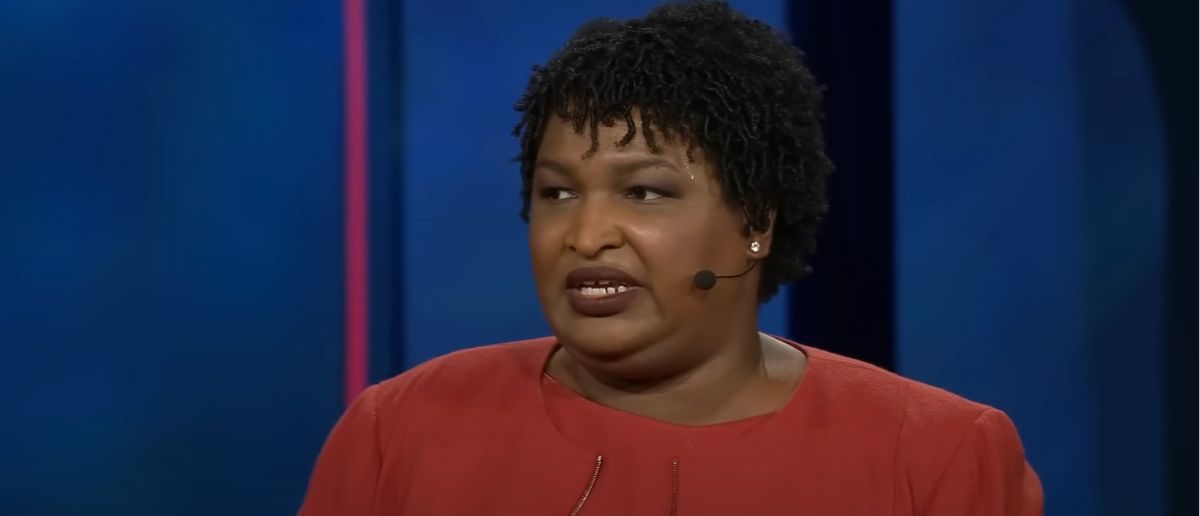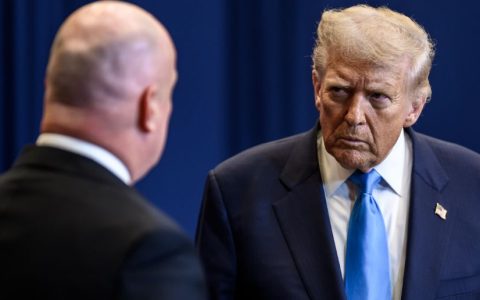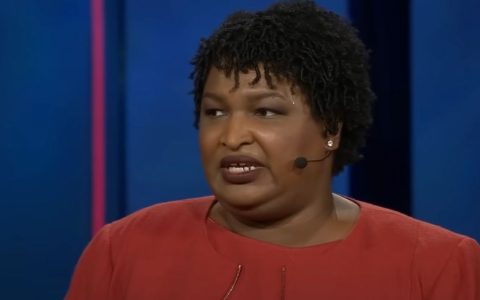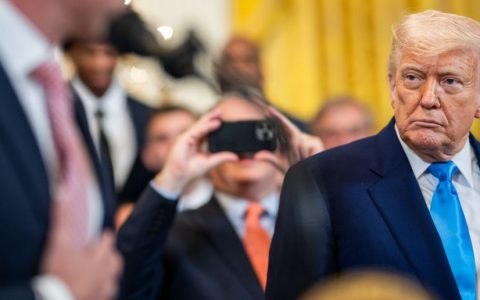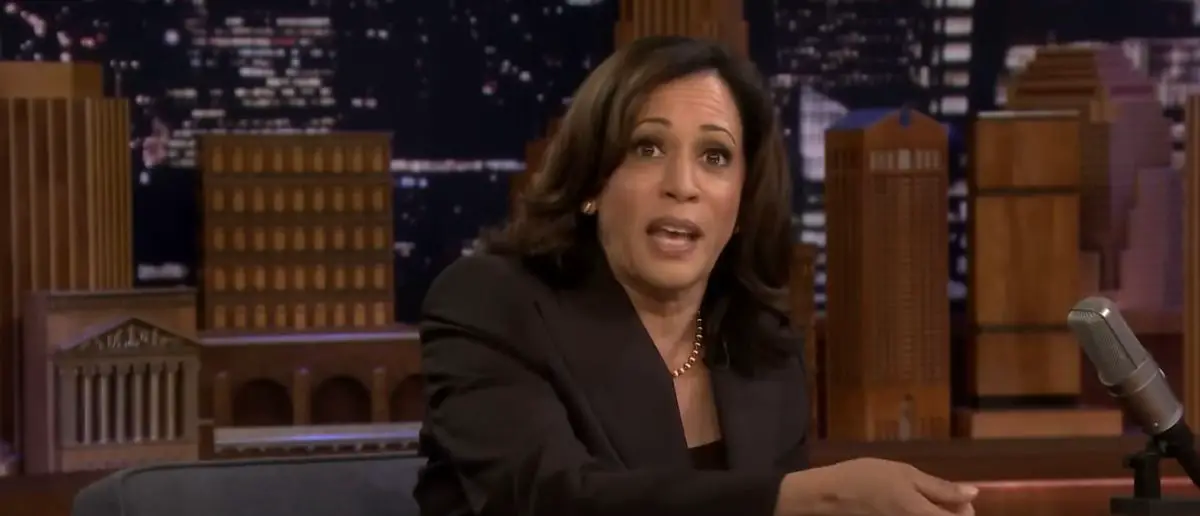
Failed Presidential candidate Kamala Harris is coming out of her shell once more. She wants the spotlight on her again.
That’s why the Kamala Harris rumors have started flying after her latest move was revealed.
Kamala Harris Book Promotion Sparks Debate, Signals Democratic Party’s 2028 Struggles
A fundraising group tied to the Democratic Party is aiding the promotion of former Vice President Kamala Harris’ forthcoming book, 107 Days. According to Axios, the Harris Victory Fund, previously linked to both Harris’ 2024 presidential campaign and the Democratic National Committee, sent out an email to market the book without soliciting donations for the DNC.
This move has sparked concerns about maintaining neutrality in future Democratic primaries, particularly as Harris is viewed as a possible contender for the 2028 presidential nomination. With President Donald Trump ineligible to run again due to term limits, both parties are bracing for highly competitive primaries in the next election cycle.
The DNC clarified it did not send the promotional email, and Axios noted that party email lists can be used for book promotions if paid for at fair market value. Fox News Digital independently verified with the DNC that it was not involved in the email’s distribution. Harris’ spokesperson, Kirsten Allen, told Axios that the email complied with Federal Election Commission regulations. The promotion highlights Harris’ efforts to engage the Democratic base to boost sales of her memoir, which will explore her brief 2024 campaign that began after President Joe Biden withdrew following early primaries.
“It was intense, high-stakes, and deeply personal for me and for so many of you. Since leaving office, I’ve spent a lot of time reflecting on those days,” Harris said in a video announcing her book on July 31. “I believe there’s value in sharing what I saw, what I learned, and what I know it will take to move forward,” she added, noting that, “Sometimes, the fight takes a while.” Such post-campaign books are common, as seen with Hillary Clinton’s What Happened after her 2016 election loss to Trump.
Harris recently confirmed she will not run for California governor in 2026, fueling speculation about a potential 2028 presidential bid. She previously sought the Democratic presidential nomination in 2020 but withdrew in December 2019.
“For now, my leadership – and public service – will not be in elected office. I look forward to getting back out and listening to the American people, helping elect Democrats across the nation who will fight fearlessly, and sharing more details in the months ahead about my own plans,” Harris stated last month. Her decision has intensified the race to succeed California Gov. Gavin Newsom, with several Democrats vying for the position.
Democrat Party’s Tough Road to 2028
The Democratic Party faces a challenging landscape as it approaches the 2028 presidential election, with no clear frontrunner to unify the party. The absence of an incumbent president or vice president running for the nomination—coupled with the competitive field of potential candidates—creates a volatile environment for the party.
The 2024 election cycle exposed vulnerabilities in the Democratic Party’s strategy. After President Joe Biden’s withdrawal, Harris’ rapid ascent to the top of the ticket was met with enthusiasm but ultimately fell short against a resurgent Republican campaign led by Trump. The loss highlighted internal divisions, with some Democrats advocating for a progressive agenda while others pushed for a more centrist approach to recapture swing voters. This ideological split complicates the party’s ability to rally behind a single candidate in 2028.
Several names have emerged as potential Democratic contenders for 2028, including California Gov. Gavin Newsom, Kentucky Gov. Andy Beshear, and Maryland Gov. Wes Moore. Newsom, a prominent figure with national recognition, is seen as a strong candidate but faces criticism for California’s economic and social challenges. Beshear, known for his appeal in a red state, could attract moderate voters but lacks the national profile of others. Moore, a rising star, brings charisma and a fresh perspective but may struggle with name recognition. Other figures, such as Transportation Secretary Pete Buttigieg or Sen. Elizabeth Warren, could also enter the fray, further crowding the field.
The lack of a unifying figure is a significant hurdle. Unlike past elections where figures like Barack Obama or Hillary Clinton commanded broad support, the current Democratic bench lacks a candidate with similar stature. Harris, despite her visibility, carries the baggage of her 2024 loss and her earlier 2020 campaign, which failed to gain traction. Her decision to forgo the 2026 California gubernatorial race suggests she may be preserving her energy for a national run, but her viability remains uncertain.
On the Republican side, the field is equally open but with clearer early frontrunners. President Trump recently suggested Vice President JD Vance as a likely leader in the 2028 Republican primary. “Well, I think most likely. In all fairness, he’s the vice president, and I think Marco is also somebody that maybe would get together with JD in some form,” Trump said on Tuesday. “I also think we have incredible people, some of the people on the stage right here. So, it’s too early, obviously, to talk about it, but certainly he’s doing a great job,” he continued. “And he would be probably favored at this point.” Vance’s prominence gives Republicans a potential anchor, while Democrats remain fragmented.
The Democratic Party’s challenges are compounded by external factors. Economic concerns, such as inflation and job growth, continue to dominate voter priorities, and Democrats must craft a message that resonates with working-class and swing-state voters. The party’s handling of cultural and social issues, often perceived as out of touch by some voters, could further alienate key demographics. Rebuilding trust in battleground states like Pennsylvania, Wisconsin, and Michigan will be critical but difficult without a charismatic, appealing candidate.
Internal party dynamics also pose problems. The progressive wing, energized by figures like Rep. Alexandria Ocasio-Cortez, demands bold policies on climate, healthcare, and wealth inequality. Meanwhile, moderates argue for pragmatism to avoid alienating centrist voters. This tension could lead to a bruising primary that weakens the eventual nominee. The DNC’s role in managing the primary process will be under scrutiny, especially after controversies like the Harris book promotion email, which some see as favoring establishment figures.
Grassroots enthusiasm will be vital for Democrats to compete in 2028. The party’s ability to mobilize young voters, minorities, and suburban women—key constituencies in past victories—will depend on a candidate who can inspire and unify. However, the current lack of clarity on leadership risks dampening enthusiasm. Fundraising, too, will be a challenge, as donors may hesitate to back a field without a standout candidate.
The Democratic Party’s path to 2028 requires strategic recalibration. Learning from the 2024 loss, the party must address voter concerns about affordability, security, and opportunity while presenting a cohesive vision. Without a clear leader, Democrats risk a repeat of past cycles where internal divisions and a lack of focus cost them winnable elections. The coming years will test the party’s ability to adapt and unite in a highly competitive political landscape.


